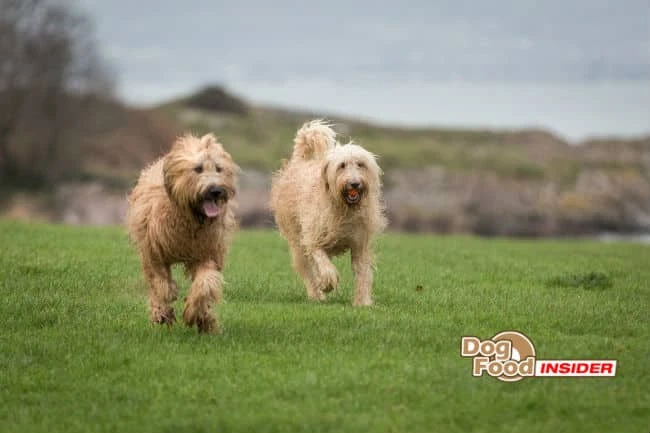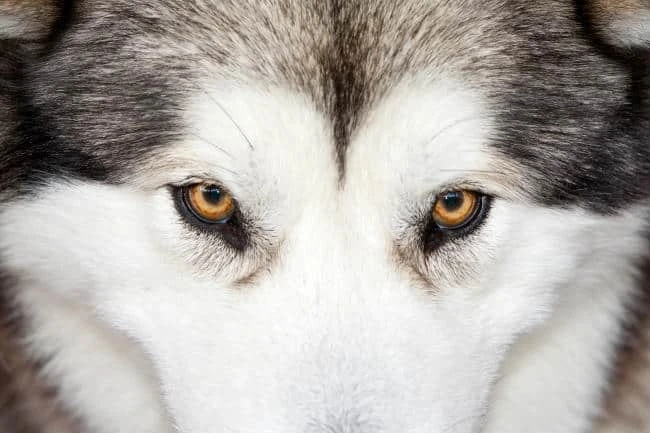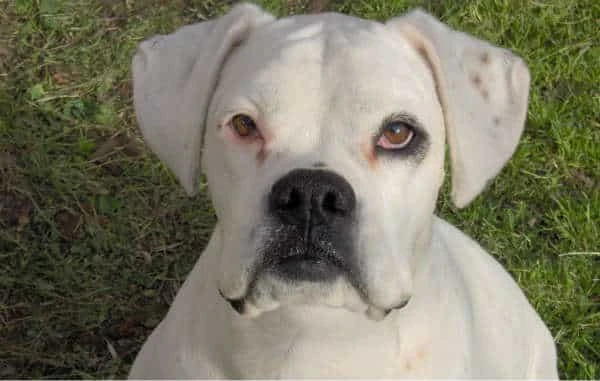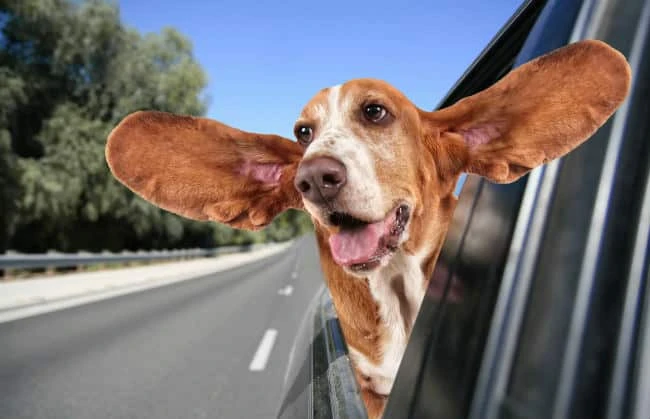Guide to Cancer in Dogs

Unfortunately cancer in dogs is one of the most common health problems to affect dogs. In fact it is estimated that one out of every four dogs will die of the disease. Experts also estimate that it is the leading cause of death in older dogs (dogs over the age of ten).
The most common types of cancer to affect dogs is cancer of the breast, mouth (oral), skin, bone, lymphoma and connective tissue. Although the disease can affect the prostate, liver, kidney, mast cells, lungs, bladder, brain, testicals, lymph nodes, gastrointestinal tract, blood (the list goes on).
Are certain dog breeds more prone to the disease?
The answer to this is yes – in fact Golden Retrievers, Boxer dogs, Bernese Mountain dogs and Greyhounds are predisposed to developing the condition.
What is cancer and how can I spot the symptoms in my dog
Just like in humans the disease is caused by abnormal cell growth. Normal cells in humans and in dogs will grow, divide and then die (this is normal). However cancer cells will grow, divide and continue producing abnormal cells.
Cancer in dogs will also develop due to problems associated with the DNA within your dog – this might be because your dog has inherited damaged DNA or because something else has caused damage to the DNA i.e. foreign pesticides, smoke or something else.
This disease comes in two forms – benign (this is when it is slow growing and can be surgically removed) and malignant (this is when the disease is aggressive and will spread quickly throughout your dogs body). The mailigant form of the disease will normally start in one place (so if it started in the Liver it would be called Liver Cancer regardless of where it spreads).
Your dog might develop cancerous tumors that start to affect normal tissue – these growths will possibly start to affect other parts of the body too – when normal tissue is replaced by a cancerous tumor it is referred to as metastasis. Non-cancerous can also develop (benign tumours) but these will affect one area and will not spread – this is referred to as metastasize.
What are the symptoms of cancer in dogs
The symptoms of the disease will vary depending on the type of cancer that your dog develops. However some of the symptoms that you might notice in your dog can include…
- Watch out for any unusual lumps and bumps that appear – you should always get any lump checked out by your vet to get an accurate diagnosis. You should watch out for any changes to a lump that your dog already has.
- Your dog might lose his appetite and appear lethargic with little energy.
- Your dog might struggle to poop – if he does defecate the stools might be long and thin.
- A runny nose (especially if blood is present) can be a symptom of cancer in dogs.
- Take a look at your dog’s mouth (inside), look out for any teeth that are loose or appear to have moved. Your dog’s breath might also be particularly unpleasant. Your dog might also drool excessively.
- Diarrhea and vomiting can also be a symptom of cancer in dogs (and a symptom of other problems).
- Your dog might need to drink more water and urinate more often. Another symptom of cancer in dogs is a difficulty when your dog try’s to urinate – there might also be blood in the urine.
- Your dog might also have fluid draining from the ears. The ears might also smell particularly bad.
- Your dog might also have difficulty when walking or appear to limp.
- Watch out for behavior changes – you know your dog best so if you have any concerns about your dog’s health take him or her to the vet.
What are the causes of cancer in dogs?
There are a variety of causes of cancer in dogs with the main causes listed below…
- Smoke can be a cause of the disease – you should never smoke around a dog as second hand smoke not only causes lung cancer in humans it can do the same for dogs too.
- Viral infections can also cause the disease.
- Herbicides (also known as weed killer can not only damage weeds it can possibly lead to cancer). Pesticides and insecticides can also cause the disease.
- As previously mentioned your dog can inherit damaged DNA that can lead to the disease starting. Genes and bad breeding can also cause the condition.
- Exposure to radiation just like in humans can lead to your dog developing cancer.
- Some experts also think that dogs that have been over vaccinated can lead to the disease.
- Nasty preservatives and additives is also bad news for your dog and can lead to the disease.
How is the condition diagnosed and treated
After you have noticed some changes in either your dog’s behavior or even physical changes and have taken your pooch to the vet’s there is a variety of methods that can be used to determine whether your pooch has cancer.
Your vet will probably start by undertaking a thorough physical examination and will look your pets medical history to see if your pooch is particularly at risk due to his or her genes or by looking at the past medical history your vet might notice some changes in your dog’s weight, physical appearance and possibly his or her behavior. You will also play an important part in the diagnosis as you know your pooch better than anyone and will be able to let your vet know of any changes that you have noticed.
Other methods to achieve an accurate diagnosis may include your vet taking an X-ray, ultrasound and even blood tests. It is also possible that your vet might take a biopsy to determine and grade whether cancer is present and whether it is benign or malignant.
How is cancer in dogs treated
There are a variety of treatments for the condition but of course it also depends on the type of cancer that your dog has…
- Chemotherapy
- Radiation therapy
- Cryosurgery
- Immunotherapy
To reduce the chances of your dog developing the disease you should feed your dog a balanced diet, avoid exposure to the sun, radiation, pesticides, smoke (basically all of the possible causes). Some experts also think that by having your dog neutered it can reduce the chances of your dog developing the disease.
A holistic approach to cancer treatment…
Below we have listed a collection of natural homeopathic remedies that may be of some benefit for treating cancer and tumors. We would always advise owners to try conventional treatment first and your dog should never be given any supplement without veterinary advice.
Asterias Rubens 6c
This homeopathic remedy is often used as a remedy for mammary tumors especially when the skin has become ulcerated. This remedy can also be beneficial if the tumor has spread to the lymph nodes.
Calcarea Carbonica 30c
This remedy is if often used to treat polyps and warts.
Carcinosin 30c
This homeopathic remedy is often used to treat anal adenomas and tumors that have formed in the epithelial tissue.
Calcarea Fluorica
This remedy is often prescribed by homeopaths to treat mammary tumors that are particularly hard to the touch. This remedy is often used for treating epulis.
Conium Maculatum 30c
This remedy is often prescribed by homeopaths to treat tumors that have affected older dogs especially anal adenomas, mammary tumors and tumors that have affected the lymph nodes.
Ferrum Picricum 6c
A particularly beneficial treatment for groups of warts and warts that have affected the feet.
Ledum Palustre 6c
This homeopathic remedy is often used to treat anal adenomas.
Hydrastis Canadensis 6c
This treatment is often prescribed to alleviate pain caused by cancer. It can also be beneficial in treating hard tumors.
Thuja 30c
This homeopathic remedy can be beneficial in treating lipomas, warts, polyps and anal adenomas.





